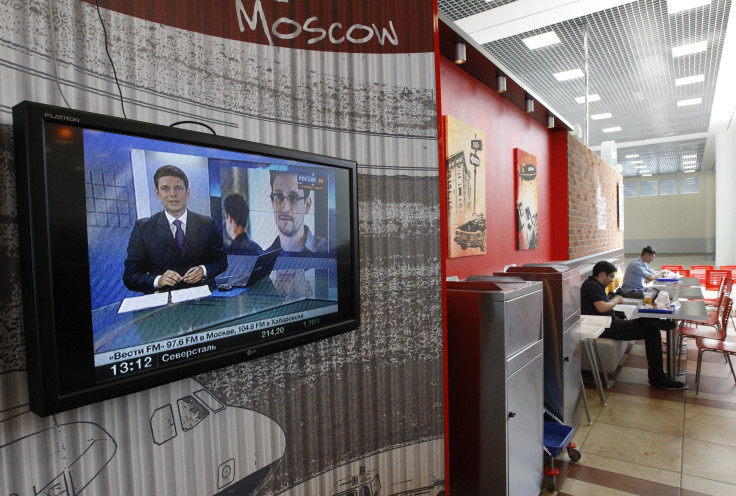Maduro Offers Asylum To Ed Snowden During Official Visit To Russia; Is The NSA Leaker Going To Venezuela?

Edward Snowden might be in fact headed to Latin America -- but not to Ecuador. Venezuelan President Nicolás Maduro has offered him asylum in his country, should the American whistleblower request it.
Maduro, who arrived in Moscow on Monday on an official visit to talk about energy and oil, has shown support for the NSA leaker since he has been on the run, accused of espionage by the U.S. government. Latin American media speculated that Snowden might try to seek refuge in Venezuela even before he requested asylum to Ecuador, as WikiLeaks’ Julian Assange had recommended, and Maduro responded saying that Venezuela would “almost surely” grant him refugee status.
“Nobody has asked us yet,” he said of the 30-year-old former contract intelligence analyst, “but if he did, we would consider it very seriously.”
Maduro added that Snowden should receive a “humanitarian medal” for what he did, and reiterated his support. “If this young man is punished, nobody in the world will ever dare to tell the truth.”
The Snowden issue has become a hot potato for the international community. Even though he is within Russia, he is most likely in the transit area of Moscow's Sheremetyevo airport, and therefore not technically in the country; he is formally in transit after arriving on a flight from Hong Kong. The Russian government has said it is not planning on turning him in, and press officer Dmitri Peskov told a Moscow radio station that the Snowden issue is not a matter for Russia to handle.
“It is not a problem Moscow has to deal with, so I do not really know what options there are or what judicial issues might play in the matter,” he said.
Peskov added that President Vladimir Putin said that he is not following the case. “The president said that he is not in charge of Snowden and he would rather the appropriate authorities deal with the issue,” Peskov added.
Snowden has been idle in Moscow’s International airport since the last week of May, when he was thought to be headed to Havana, on a plane that left without him. The whistle-blower then requested asylum to Quito, and although the ambassador of Ecuador to London reportedly issued a safe-conduct letter that would allow Snowden to travel after the U.S. revoked his passport, the initial welcoming attitude that President Rafael Correa showed has cooled off in response to recent events.
Shortly after Correa announced that he was considering granting asylum to Snowden, the U.S. announced the cancellation of a special trade agreement with Ecuador as a way to pressure the Latin American country into refusing to host the whistleblower. Correa then had a phone conversation with U.S. Vice President Joe Biden on June 29, which was characterized as “cordial” and “courteous,” and in which, as reported by Reuters, Biden asked Correa to back out of the Snowden issue.
Venezuela seems now like the best option for Snowden to get out of Russia; local media have speculated that Maduro might even take the leaker with him as he leaves the country on Tuesday. Traditionally, foreign delegations visiting Moscow land at the government airport of Vnukovo, without going through the border procedures of the Sheremetyevo international airport. Maduro might even take back to Caracas an extra passenger in his private plane, reported Russian newspaper Izvestia.
Such a step would be unorthodox, but not unheard of, according to a Latin America expert from the Russian State University for the Humanities, Mikhail Beliate. “Protocol is protocol, but the new Venezuelan leader has adopted as his the extravagant behavior of his predecessor [Hugo Chávez], particularly in foreign relations,” he told the Moscow paper. “It wouldn’t surprise me in the slightest [if] Maduro decided to take Snowden with him as he leaves.”
© Copyright IBTimes 2025. All rights reserved.





















